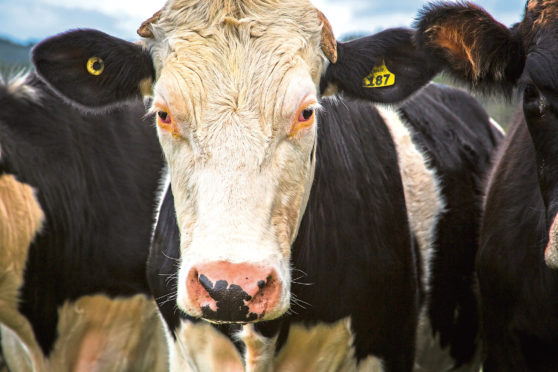Scottish farmers and crofters will soon wave goodbye to paper passports for cattle once a new electronic identification (EID) system, tracking cattle throughout their entire life, comes into force.
ScotEID, which manages the database for recording animal movements in Scotland, has designed and developed a new recording system for the national herd.
The proposed new system, which follows a voluntary industry-led pilot project, uses both advanced Ultra High Frequency (UHF) and low frequency scanning technologies to record cattle data using EID tags.
Low frequency technology is used in the sheep sector and while effective, farmers are unable to record more than one animal in a group.
UHF, however, allows farmers to record a batch of animals in one go and from a greater distance.
The ScotEID database will bring together all farm livestock movements, removing the need for paper passports, incorporating births, deaths and movements between holdings.
It will replace the British Cattle Movement Service’s (BCMS) Cattle Tracing System (CTS) for Scottish cattle keepers and provide an online herd register for farmers.
“When the system is adopted in Scotland, then all movements to and from markets and to abattoirs will be recorded using UHF technology, which is good from both a health and safety perspective but also for ease of use,” said ScotEID director, Bob Yuill.
“Using electronic ID tags, electronic reading and electronic data transfer will reduce the administration burden and recording errors for the livestock sector and be safer in terms of requiring close handling of cattle. It will also help to future-proof the recording process.”
He said a series of roadshows is planned from October to March to explain the new technology to farmers, ahead of the introduction of legislation for mandatory bovine EID in future.
The roll-out of EID technology in Scottish cattle will be subject to industry consultation and the first step for introduction is likely to be EID tagging of all new-born calves.
Thereafter, it is likely all cattle leaving a holding will require EID tags within two years of the first calves being tagged and only adults will require retagging at that point.
“We will be able to explain in more detail and answer questions that interested parties may have, during our roadshow events,” added Mr Yuill.
